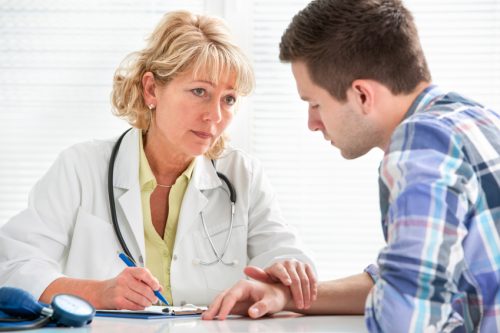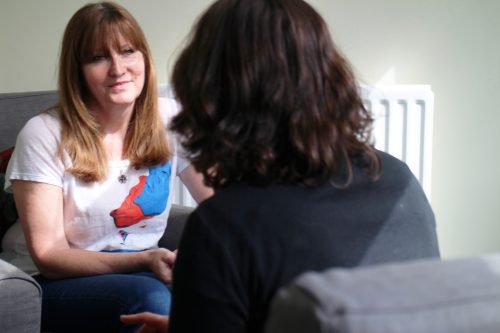Clinical depression has become a serious clinical issue in modern society. Let’s learn more about clinical depression here.

There has been an alarming increase in the number of individuals suffering from depression. But when is depression considered clinical?
Clinical Depression
Because of severe depression, which includes bipolar disorder, premenstrual dysphoric disorder, postpartum depression, seasonal affective disorder, anxiety disorders, and persistent depressive disorder, many people have decided to end their lives. For them, it’s all about death or suicide.
Having known this, our goal is to make them feel that they are not alone in this journey of fighting mental illness and other mental health problems like clinical depression.
The good news is that there are many ways how you could extend your help to these persons with deep mental health conditions like clinical depression.
You can help them relive their feelings of worthlessness and encourage them to take part in support groups and follow-up safety treatment.
In treating clinical depression, it is essential to let them know that you are willing to listen to what they have in mind and how they struggle with depression symptoms.
According to the National Institute of Mental Health, you have to let them know that their major depressive disorder should never encourage thoughts of death or loss of interest in relationships with significant others and families.
You Can Always Help People With Clinical Depression
It is important that you let them feel that you would be happy to discover what bothers them, especially if they have a family history of depression symptoms and clinical depression.
That way, you can at least stop them from having suicide attempts and offer different types of treatment options for their clinical depression.
Most importantly, make them feel that they can run to you whenever they have reached rock bottom. Let them know that you are there for them despite their medical condition and mental health challenges related to the disorder.
However, if you believe that the concerns of a clinically depressed person have severe major depression and need immediate attention, then be sure to get in touch with a therapist.
(You can reach a therapist online anytime through BetterHelp. Do not hesitate. Just go to the site and check their roster of qualified therapists 24/7.)
How It Helps In Recovering From Clinical Depression
At this point, it is essential to emphasize the fact that there are several causes why a person has other symptoms of diagnosed depression.
Clinical depression may arise after someone experiences a traumatic experience. It is not just them who feel sad, have a depressed mood, or dealing with an unpleasant emotional state.
Sometimes the symptoms of clinical depression also include them getting involved with drugs or substance use or alcohol abuse. This is not something family members should ignore.
Therapy and other treatments can help a person who has clinical depression. With the right hours of clinical depression therapy sessions, the person involved may learn to get back on track and recover from the trauma. Remember that coping is essential for recovery effectiveness.
In some instances, antidepressant medications can also help. Provided they are prescribed by a health professional. It may not completely aid physical problems such as weight loss, hormonal changes, or difficulty concentrating, but it can help with the signs and symptoms of persistent depression.

Therapy Can Give New Hope
Understanding The Treatment
According to most healthcare experts of the American psychiatric association, the feeling of hopelessness is only typical of a person with depression.
Because of the endless problems and struggles that a person encounters, there is a high possibility that he would want to escape forever.
People, especially teens, who have depression have suicidal thoughts.
What are the Benefits of therapy for people who have been diagnosed with depression?
Therapy is the key to making the person feel that there is still a better tomorrow despite the pain or suffering or melancholy is giving him.
With this kind of treatment for major depression, he can condition his mind to think happier and more positive thoughts rather than having feelings of worthlessness.
The diagnostic and statistical manual explains that treatments such as electroconvulsive therapy, transcranial magnetic stimulation, and talk therapy can help with significant life changes.
The primary care doctor can assist the process with the help of the manual of mental disorders and statistical manual of mental health treatment.

The Therapy Can Restore Balance
Jennifer Bradley, Psy.D., HSPP, Clinical Psychologist once said, “I believe that human beings have an inherent longing and need for wholeness and balance, which is our natural state of being.”
A lot of things can happen to a person with major depressive disorders, says an expert from the National Institute of Anxiety and Depression Association.
He knows that he has clinical depression, but he will not do anything about it. He would rather allow himself to suffer in silence than open up to others.
This is why many of them eventually decide to end their lives.
With therapy sessions, the individual who is clinically depressed will be encouraged to regain his self-love despite the chronic pain and physical symptoms he is experiencing. Together with this comes the restoration of balance in his life.
Continued attendance at meetings with a counseling therapist could lead to a more fruitful and well-balanced life while having depression.
Seek help and contact a community health care provider immediately.
Conclusion And Takeaway
It is important to identify that clinically depressed people are in danger of their own minds. Thus, always find time to help someone who is clinically depressed. Do your part in saving someone’s life by being there. You can refer him to a professional therapist so they can plan out a suggested process of treatment.
Clinical depression can affect how a person thinks therefore affecting overall wellness.
Frequently Asked Questions About Depression
What Are The Two Symptoms Of Clinical Depression?
Two symptoms of clinical depression are persistent feelings of sadness and a loss of interest in previously enjoyed activities. It’s crucial for those experiencing these symptoms to consult a health professional to get a proper assessment of their mental health and any underlying health conditions.
What Are The 3 Levels Of Depression?
The three levels of depression are mild, moderate, and severe. These levels are characterized by the intensity and duration of the symptoms of depression. It’s important to note that all levels are valid mental health conditions and warrant attention and care.
What Is The Last Stage Of Depression?
The last stage of depression is often referred to as major depressive disorder. This is one of the severe forms of mental disorders, sometimes also linked with bipolar disorder. Individuals at this stage may experience extreme feelings of worthlessness and may have persistent thoughts of death or suicide.
Can Depression Be Lifelong?
Is Depression A Lifetime Thing?
Can Depression Permanently Damage The Brain?
What Depression Does Do To The Brain?
What Is The Most Common Way To Treat Depression?
What Is A Mental Breakdown?
How Long Does It Take To Be Medically Depressed?
What triggers clinical depression?
Is clinical depression a disability?
What are the 3 signs of clinical depression?
What is the meaning of clinical depression?
How do clinically depressed people act?